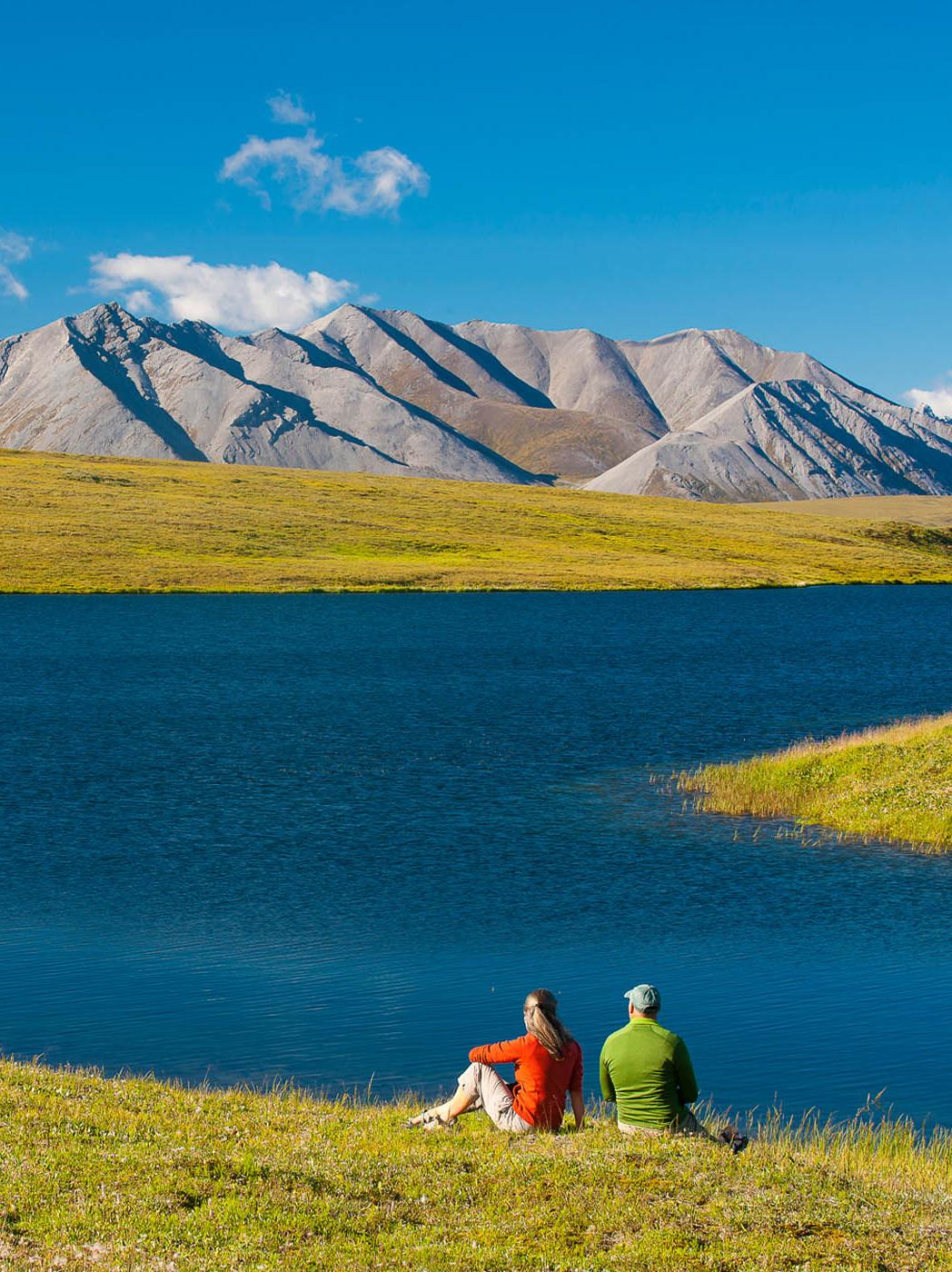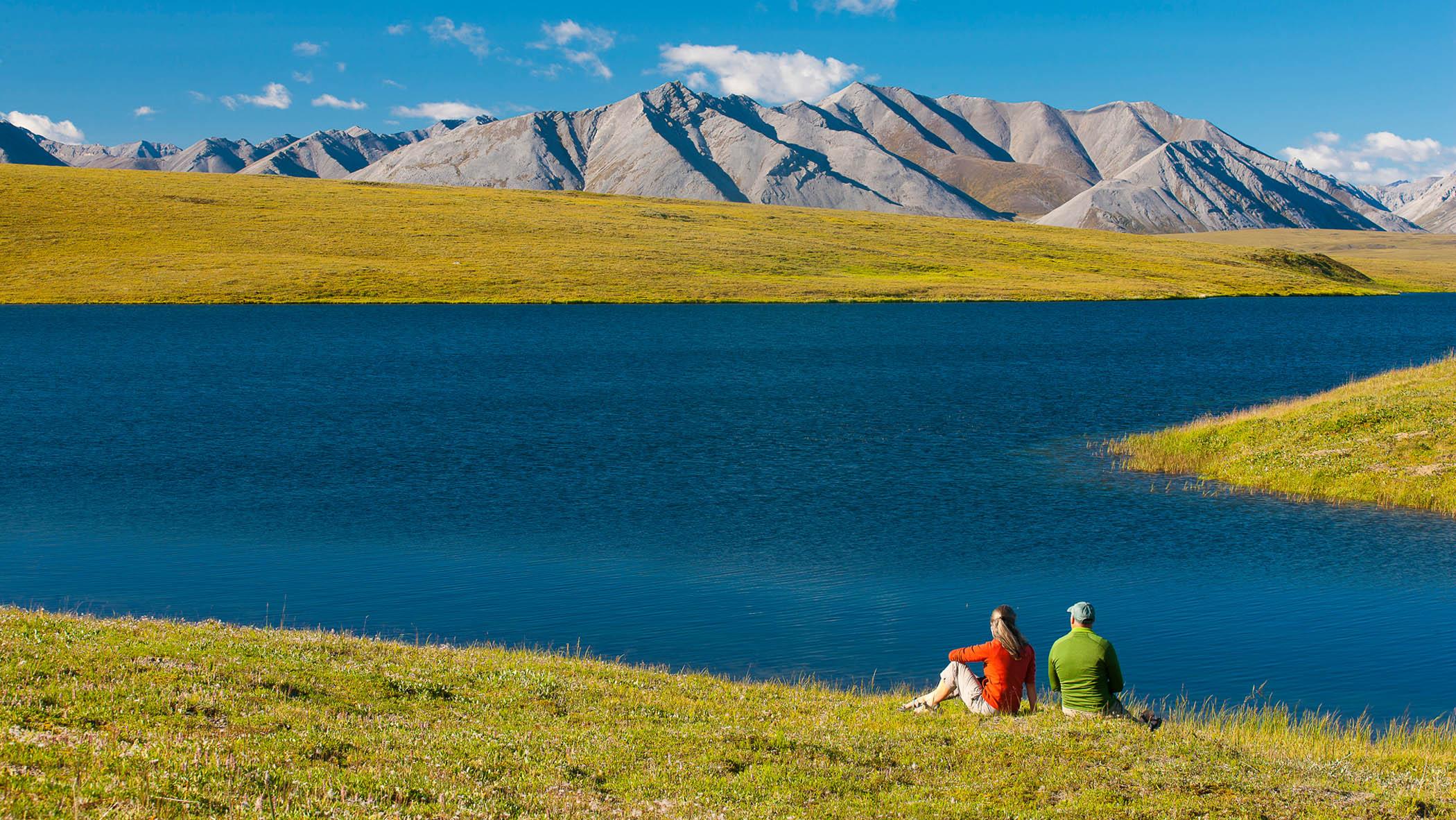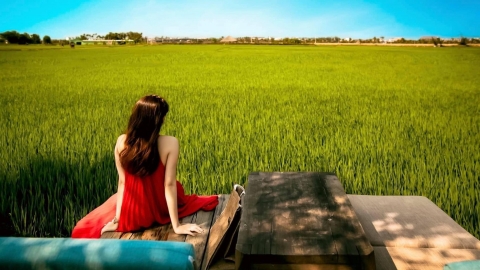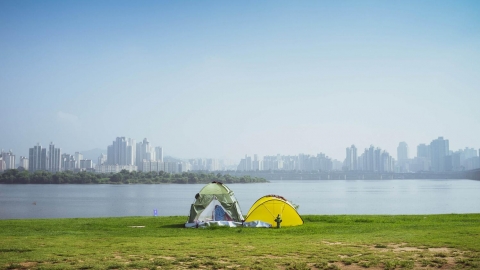1. Limits on accommodation options
Sawday is a UK and European accommodation provider, similar to Airbnb and Wimdu. Recently, the company announced it will be reducing the number of its properties in some of the most overcrowded areas. This means that, in a given area, the company will have to remove one existing property before building another.
This is one of the pioneering policies aimed at addressing current tourism challenges, such as infrastructure and service issues, ownership rights of resort properties, tourism overcrowding, and negative impacts on the ecosystem.
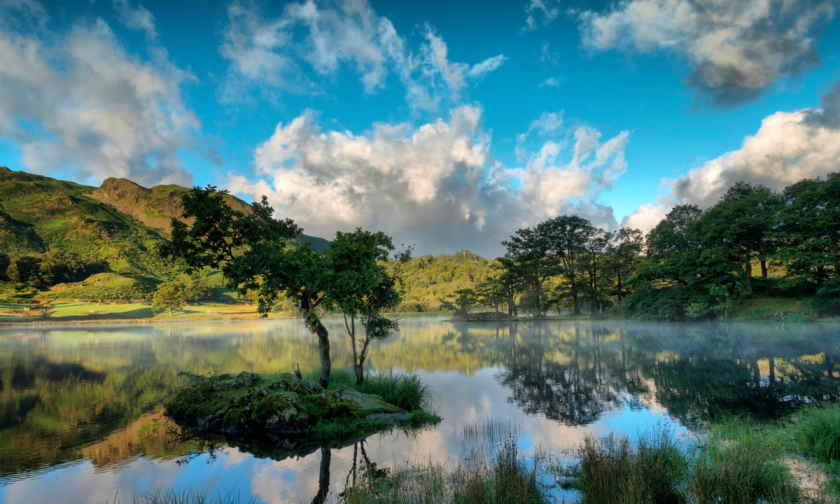
Lake County, a mountainous area in Northwest England, is one of the overtourist hotspots that Sawday is restricting operations in - Photo: James Ennis/Getty Images
Sawday representatives shared that while they acknowledge the policy won't have a massive impact, the company hopes it will inspire other tourism businesses. "Continuously increasing the number of accommodations, lodgings, or tourism products indiscriminately is unsustainable. We need to ensure the number of tourists is at an acceptable level, especially in areas already experiencing tourism overload," said Mike Bevens, CEO of Sawday.
2. Develop a filter for electric vehicle rentals.
In early April, the budget flight booking website Skyscanner launched a filter for searching for electric and hybrid car rentals (vehicles that use two power sources: an internal combustion engine and an electric motor), making it easier for travelers to book environmentally friendly transportation. The filter transparently compares electric car rental costs and displays a network of available charging points across Europe and the United States. According to the new filter, Portugal is one of the destinations with the most affordable electric car rental prices for summer 2022.
With this tool, Skyscanner expects demand for electric and hybrid car rentals to increase, reducing the environmental burden of emissions. This initiative builds on Skyscanner's Greener Choices flight filter tool, launched in 2019 to help travelers find flights with lower CO2 emissions.2than.
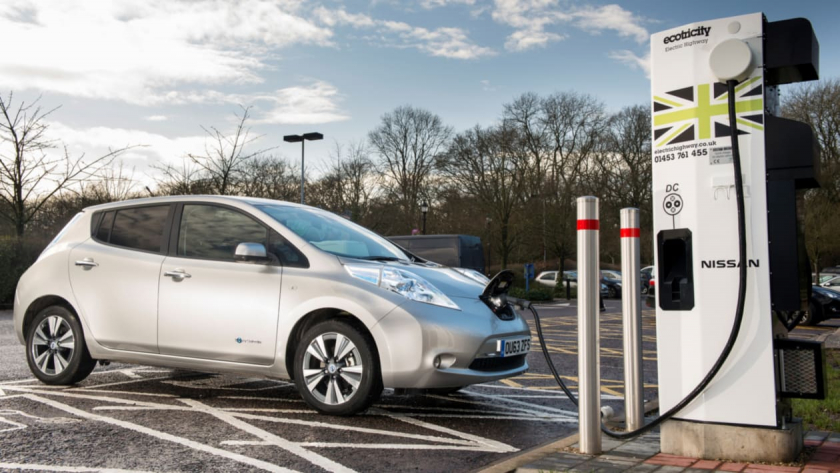
A Nissan electric vehicle charging station - Photo: Internet
3. Kilimanjaro summit trekking tour exclusively for women.
Kilimanjaro is the highest mountain in Africa. This colossal volcanic massif stands alone, its summit covered in snow year-round. At its base lie lush green forests home to many endangered animal species.
This July, Earth's Edge, a trekking company based in Ireland, will be organizing an expedition to the summit of Kilimanjaro – Africa's highest and most fiery mountain – exclusively for women. Over 80 indigenous Tanzanian women will also be hired as guides, cooks, and porters for this trek.
This is an effort to increase the number of women working with Earth's Edge in Peru, Kenya, and India. After gaining experience as porters, these women will have the opportunity to become tour guides in Kilimanjaro – one of the most lucrative jobs in the region, in an industry currently dominated by men.
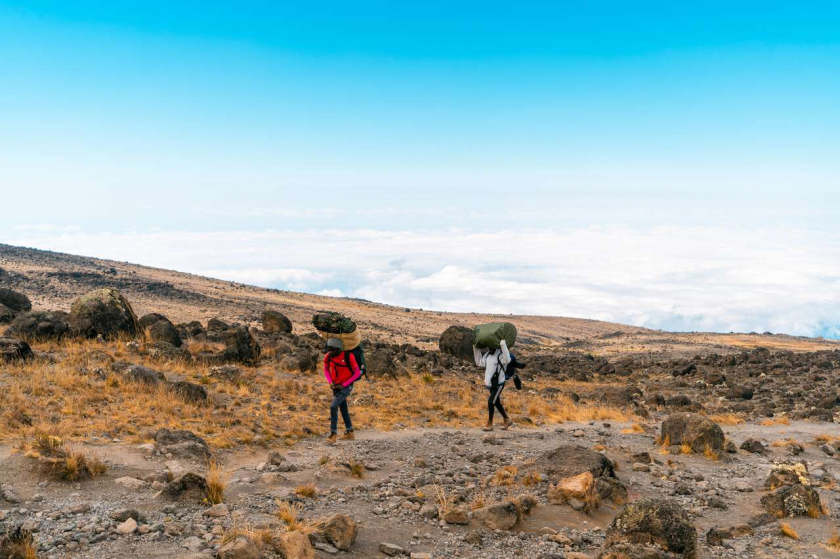
The women of Kilimanjaro
In preparation for the upcoming expedition, the company partnered with the Kilimanjaro Porter Support Project – a non-profit organization working for porters in the tourism industry – to recruit, train, and encourage more local women to participate in this field.
4. The Clear on Carbon campaign
In early April, the adventure travel company Explore announced one of the most comprehensive carbon measurement projects in the tourism industry – the Clear on Carbon campaign. Specifically, for a total of 515 trips organized by Explore, the company collected information on travel itineraries, accommodation, food, activities, etc.; then compiled and summarized the carbon emissions of each trip. This data will help consumers better understand the environmental impact of their travels.
Explore then worked with ClimateCare to offset its carbon emissions and continue to monitor carbon transparently. With this move, Explore aims to reduce its carbon emissions by 50% by 2030.
Similarly, two UK-based corporations, Pura Aventura and Wilderness, have also begun affixing carbon emission index labels to their tourism products.
5. Climate Action Plan
Hotelplan UK – a partner that launched the Glasgow Accords at the Cop26 Climate Change Summit – has appointed its first climate action team to spearhead climate change initiatives, moving toward promoting sustainability during the pandemic with a range of green tourism policies.
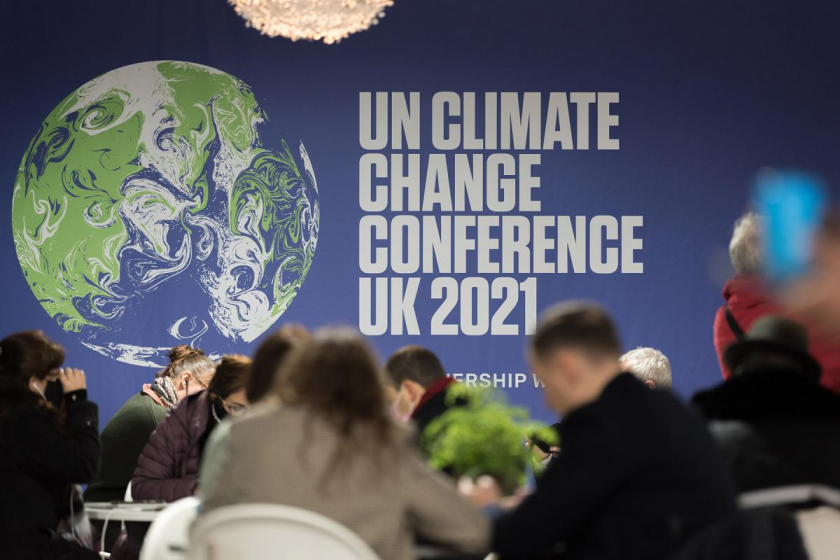
Climate Change Summit Cop26 - Photo: Internet
In March 2022, Hotelplan UK partnered with ClimateCare on a carbon offsetting project. The company also committed to reviewing its carbon footprint in 2023 to ensure the emissions reduction process is being taken seriously. (A carbon footprint is the extent to which a hotel impacts the environment, such as the amount of natural resources it uses and the amount of harmful emissions it produces).
The company also partners with Eco Ski, a ski equipment retailer, to encourage winter vacationers to repair, rent, or buy used equipment instead of purchasing new.
6. Travel without airplanes
Recognizing the growing number of people traveling for events, the travel company Byway has launched a non-flight travel planning service for international events. The first partner in this project is...Run for Love, a six-day charity race takes place in Croatia in May. Through a partnership with Byway, participants can choose to travel to the starting point entirely by train.
Cat Jones, founder of Byway, sees this move as a step toward offering airless travel in Europe, for both leisure and business. Jones said: “Our mission is to make slow travel mainstream. We’re building routes that don’t require air travel. It’s about rediscovering the feeling of travel and discovery, rather than going straight from A to B.”
7. Environmental Initiatives
In October 2021, adventure travel company Exodus set a goal of becoming completely environmentally friendly by 2024, through a plan to halve its carbon emissions by 2030 and offer airplane-free tours.
These are the first actions in Exodus's Environmental Initiative, aimed at reducing negative impacts on natural ecosystems and proactively supporting nature's regeneration. The company is also partnering with the non-profit organization Rewilding Europe on a project to rebuild 100 m².2The project involves allocating land area to each tourist who books a tour. The project is most extensively implemented in the Apennine Mountains region (Italy). Last year, the company funded the redevelopment of over 400 hectares of land in the area, equivalent to removing approximately 1,500 tons of carbon from the atmosphere annually.
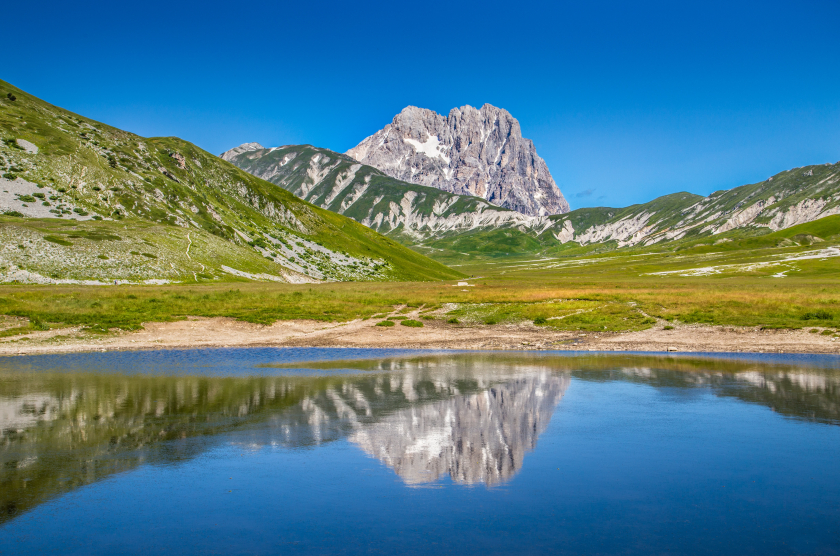
A region of the Apennine Mountains (Italy) - Photo: PeakVisor
8. Eliminate landfills.
Founded in 2008, Lovat Parks, a tourism accommodation company, has nine park areas serving tourists in Cornwall, Suffolk, and Norfolk in the United Kingdom. As part of its landfill cleanup project, Lovat has built beach playgrounds, food bins, free water stations, and uses locally sourced ingredients in its cafes; it has also set an ambitious goal of reducing landfill waste by 90% by 2025.
To fulfill this commitment, Lovat will eliminate all single-use plastic bottles sold in its shops and cafes located on its properties. In the Cornish district alone, this action could prevent over 1,700 plastic bottles from ending up in landfills.

A poster at a beach toy section of Lovat Parks - Photo: Lovat
9. Intrepid's 22 impact initiatives in 2022
Intrepid Travel, the world's largest small-group adventure travel company, is considering removing all flights under 90 minutes from its 50 best-selling tours in an effort to reduce emissions.
Intrepid stated that its tours always prioritize the local community, a commitment clearly demonstrated in its recently announced “22 Impact Initiatives for 2022.” These initiatives provide tourists with direct experiences that benefit local people, conserve nature, wildlife, and indigenous culture. A prime example is the experience of meeting Vietnamese artisans who create art from recycled waste in Ha Long Bay.
10. Sustainable Villas
To meet the growing demand, Tuscany Now & More – an Italian company specializing in villas – has announced a portfolio of sustainable villas, featuring criteria such as: the use of solar panels, a farm-style experience built with sustainable materials, etc. The villas accommodate 6-14 people and are equipped with renewable energy-powered air cooling systems, and sustainably heated and cleaned swimming pools. Some villas also include organic vegetable gardens and electric vehicle charging stations on-site.

 VI
VI EN
EN



